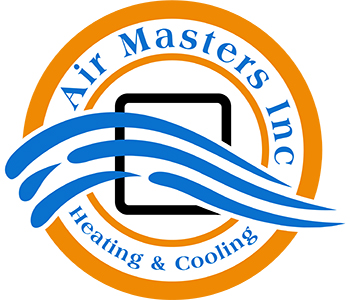
Did you perform a double take when you viewed your last energy bill? Even though high energy bills can be the consequence of severe weather conditions, consistently high bills can often suggest an inefficient HVAC system or your home is wasting energy through other means, including drafty windows or poor insulation.
One of the easiest ways to figure out whether your home is wasting energy is by getting a home service specialist to carry out a home energy audit, also called a home energy assessment. Keep reading to learn all about home energy audits, including what they are and their key elements.
What Is a Home Energy Audit?
An energy audit is a custom inspection of how much energy your home uses up and whether – and where – your home could be losing or wasting energy. An inspector will take a look at older energy bills in the course of an energy audit to figure out where energy is being used and how much.
The general goal of an energy audit is to help homeowners save money on their energy bills by identifying energy-efficient updates, which can include exchanging your existing HVAC system, putting in new insulation, sealing up leaks, or replacing old windows.
During the energy assessment, the auditor performs an inspection of the outside and inside of your home. The auditor will perform a blower door test on doorways, windows and fireplaces to find out if there are air leaks in your home. They’ll also check your home’s HVAC system, which also includes the ductwork, the water heater, and the insulation in your attic. Exhaustive assessments might also include checking your current lighting system.
Benefits of a Home Energy Audit
It can be difficult for the typical homeowner to know for sure how efficient their home is compared to other similar homes in their neighborhood. However, lots of energy companies often supply information about where your home ranks when compared with similar homes and whether it’s more efficient, about average, or inefficient compared to your neighbors’ homes. This could be a great starting point to figure out if you need an energy audit scheduled.
Some of the benefits of a home energy audit include:
Recognizing How Efficient Your Home Is
It’s good to know how efficient your home is and where you’re using up the most energy. For example, if your ducts are leaking, it could result in a large increase in your energy bills and excessive wear and tear on your HVAC system since it has to run longer to properly heat or cool your home.
Making Energy-Efficient Upgrades
An energy audit should reveal where you need to make energy-efficient improvements to save on energy and lower utility bills. This may include replacing worn-down weatherstripping or installing a new energy-efficient furnace.
Improving Health and Safety
Allowing air to slip into your home via doors and windows, or as a result of a lack of insulation can cause extra moisture to appear, which could negatively affect your home’s humidity levels or lead to mold. This can cause health conditions, especially for people suffering from asthma or allergies.
Raising Your Home’s Retail Value
Energy-efficient homes are sought after by homebuyers. You can sell your home much faster or for more money by demonstrating to possible buyers that it’s energy efficient.
How to Do an Energy Audit of Your Home
Although performing an energy audit on your own will not be as thorough as choosing a professional, it’ll offer you a generalized idea of how energy efficient your home is. If you don’t find any problems during the DIY test, then you probably don’t need to hire a professional. Try this step-by-step checklist:
- Review your HVAC system. Leaky ducts can lose nearly 20% of conditioned air, contributing to steeper energy bills and increased strain on HVAC equipment. If you discover leaks, use duct tape to plug them. If your HVAC equipment is old and inefficient, upgrading to a new system can save you a considerable amount on your energy bills. In some cases, it can be better to call a reputable HVAC company to inspect your system.
- Check for air leaks. Air leaks on average can raise the energy bills by 10 to 20%. Inside, look for air leaks in areas where there could be a draft, such as along the edge of flooring and along baseboards and electrical outlets. Outside, you can look for air leaks along the home’s foundation, siding and mortar. Plug, caulk or seal any air leaks to save money.
- Examine insulation. If your home is older, it could mean your insulation is too. If you can see the joists, you likely need more insulation.
- Check ventilation. Ensure that all of your kitchen and bathroom exhaust fans are functioning properly, and check for evidence of rot or moisture.
Contact Air Masters Heating & Cooling for a Professional Energy Audit
If you would like professional help determining how energy efficient your heating and cooling equipment is, call the HVAC professionals at Air Masters Heating & Cooling today. We’ve proudly served the residents of Port Orchard with quality home services for a long time. Contact us today to set up an appointment.

